#MHYALit: Depression and Obsession: The Pressure of Teen Athletes, by Mia Siegert
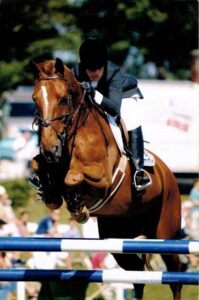 I remember the day my boyfriend said he liked me better when I was depressed. That happy-me was annoying and foolish, juvenile and boring, that I was only cool when I was at my worst, struggling to get by as a young athlete on an Olympic-hopeful track. I remember where he said it, pulling me toward the lockers, just out of earshot of everyone, how he gave me Nirvana albums for my birthday. That day, I stopped smiling. Sure, there are pictures of me with a grin on my face, a plastic personality I mastered in an attempt to make sure everyone was happy with me and that I could maximize my chances of getting a sponsor.
I remember the day my boyfriend said he liked me better when I was depressed. That happy-me was annoying and foolish, juvenile and boring, that I was only cool when I was at my worst, struggling to get by as a young athlete on an Olympic-hopeful track. I remember where he said it, pulling me toward the lockers, just out of earshot of everyone, how he gave me Nirvana albums for my birthday. That day, I stopped smiling. Sure, there are pictures of me with a grin on my face, a plastic personality I mastered in an attempt to make sure everyone was happy with me and that I could maximize my chances of getting a sponsor.
I was a sophomore in high school. I just turned fifteen.
Even before then, I was a deeply unhappy child by no fault of my extremely supportive parents. Some people are just born sad, something that I didn’t understand until I was in my early twenties. I assumed it was my surroundings. My misery had to be caused by those around me, not something within, something I couldn’t control. I was mercilessly bullied in elementary school, from tiny things like being told I had too much hair on my upper lip, that I was ugly, that I was fat, that I had nose zits (so badly that I had a major triggered reaction when seeing a mock up of my book cover). Then it got worse: kicked in the leg in the hallway, punched in the face on the bus, stabbed in the neck with a pencil. Middle school wasn’t much better with the prank phone calls about boys at dances saying I was sexy, designed to try and get me grounded while making fun of me for my clothes, a lime green shirt with a black stripe that I loved and immediately gave away so I’d never wear it again.
ADVERTISEMENT
ADVERTISEMENT
This was a year before everything happened.
With unhappiness, like many others, I clung to obsessions because it was something to ease the pain and distract me from what was wrong, really wrong. I loved horses. I still love horses, and I miss riding them, training them, showing almost unrideable ones so well that I got the attention of (and later trained with) the coach of the United States Equestrian Team for Show Jumping. I was so obsessed there was nothing else on my mind. I couldn’t connect with people the way I did with horses. Horses were honest; people could be cruel.
I was seventeen when my favorite horse, Grando 181, died. I could have ridden him the day before after I took my ACTs, but he’d been acting up that week and I was feeling lazy, something I rarely felt. I’ve never regretted that decision more in my life. I won’t forget the assistant barn manager taking off toward my car, saying, “Your horse is sick.” I won’t forget asking “which one” even though I already knew it was him and it wouldn’t have mattered. I won’t forget me asking where it was, running full speed to the indoor ring where the grooms walked him, trying to keep him from rolling so his intestines wouldn’t twist up even more. I won’t forget not recognizing him, drenched in sweat and in pain. I won’t forget seeing him loaded up on the trailer to go into a seven-hour emergency surgery, being told he had less than a 25% survival rate, that if he made it seven days, we were in the good. I won’t forget the sound of the phone ringing, my Mom running up the steps, us racing in the car, stepping into the vet’s practice as he collapsed. I won’t forget how I put his head in my lap and he looked me in the eye, doing everything he could to get on his feet so I wouldn’t see him sick. Or how he looked at me when I was told to leave the stall, then turned his head away, because he didn’t want me to see him die.
I won’t forget how a few months later I had a horrible fall where I crushed the cartilage in both knees and was told I wouldn’t be able to run again.
I won’t forget how a few months later, overdosing on pain killers just so I could compete (despite not being able to feel my legs) I was pulled into an empty stall by my trainer and was dismissed, told “life isn’t fair.”
My career was over. I was eighteen.
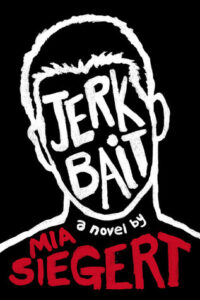 The way I latched onto horses and show jumping as a sport is similar to the way Robbie latched onto hockey in my debut, JERKBAIT. Same age (18) and everything. Like me, Robbie is extremely depressed. Like me, Robbie adopts a persona that is pleasing, sometimes popular, among his teammates. Like me, Robbie suffers anxiety for the future, fearing failure just as much as he fears success and the what-if. Like me, when Robbie’s world shattered, he felt hopeless—what else is left?
The way I latched onto horses and show jumping as a sport is similar to the way Robbie latched onto hockey in my debut, JERKBAIT. Same age (18) and everything. Like me, Robbie is extremely depressed. Like me, Robbie adopts a persona that is pleasing, sometimes popular, among his teammates. Like me, Robbie suffers anxiety for the future, fearing failure just as much as he fears success and the what-if. Like me, when Robbie’s world shattered, he felt hopeless—what else is left?
ADVERTISEMENT
ADVERTISEMENT
When I started writing JERKBAIT, it was extremely autobiographical. I was Tristan and Heather was a former friend, someone who blamed a (what I eventually learned was non-existent) suicide on me on the two-year anniversary of Grando’s death. In the early drafts, I chronicled how miserable I was, how worthless I felt in the shadow, how desperately I wanted to fit in. I wrote about a terrifying encounter with a person who would later be convicted as a sex offender, someone I met online because I didn’t have anyone to speak with in person as I lost friends with my decision to compete on the A-circuit.
But stories evolve, and JERKBAIT improved as I moved away from my story and into those of the characters. I discovered that although Tristan is the protagonist, the story was really about Robbie, a NHL prospect who seems to have everything. But soon, he attempts suicide, repeatedly. Forced to share a room with Tristan so that Tristan can care for Robbie and protect his career, Robbie is faced with his fears. He’s gay, closeted not because of shame but because of the pressure, because of the all-too real and current repercussions of being out in the professional sports world, especially with the cutthroat nature of juniors.
I feel it’s important to not skirt around the pressures, anxiety, and depression that often accompany teen athletes and present it in YA literature. There needs to be literature that a teenager could relate with and, in my opinion, their caretakers or parents. Warning signs need to be addressed immediately. People need to learn that although it’s important for athletes to perform at their best the only way to do so is to have help, usually from an outside professional. And maybe, just maybe, if there are a few more books that delve into the pro-sports world with teen athletes, bringing up the often ignored issues (locker room homophobia, hazing), maybe then we will stop seeing a large amount of teen athletes quit their passion in efforts to get up to a professional level. Maybe then, it will alleviate some of the anxiety teen athletes face as they can focus on their love, their passion, their sport, and, more importantly, having a fulfilling life.
Meet Our Guest Blogger
About JERKBAIT
Even though they’re identical, Tristan isn’t close to his twin Robbie at all—until Robbie tries to kill himself. Forced to share a room to prevent Robbie from hurting himself, Tristan starts seeing his twin as not an NHL prospect, but a struggling gay teen who is terrified about coming out in the professional sports world. Trapped together in their claustrophobic room, Robbie suggests they run away with “Jimmy2416,” a guy Robbie has talked to online for months but never met. Tristan must decide whether to tell his parents about Robbie’s plan, losing his twin’s trust forever, or go on a journey that will put their lives and innocence in jeopardy. (Coming May 3, 2016 from Jolly Fish Press).
Filed under: #MHYALit
About Karen Jensen, MLS
Karen Jensen has been a Teen Services Librarian for almost 30 years. She created TLT in 2011 and is the co-editor of The Whole Library Handbook: Teen Services with Heather Booth (ALA Editions, 2014).
ADVERTISEMENT
ADVERTISEMENT
SLJ Blog Network
The Moral Dilemma of THE MONSTER AT THE END OF THIS BOOK
Cover Reveal and Q&A: The One and Only Googoosh with Azadeh Westergaard
Winnie-The-Pooh | Review
Parsing Religion in Public Schools
ADVERTISEMENT



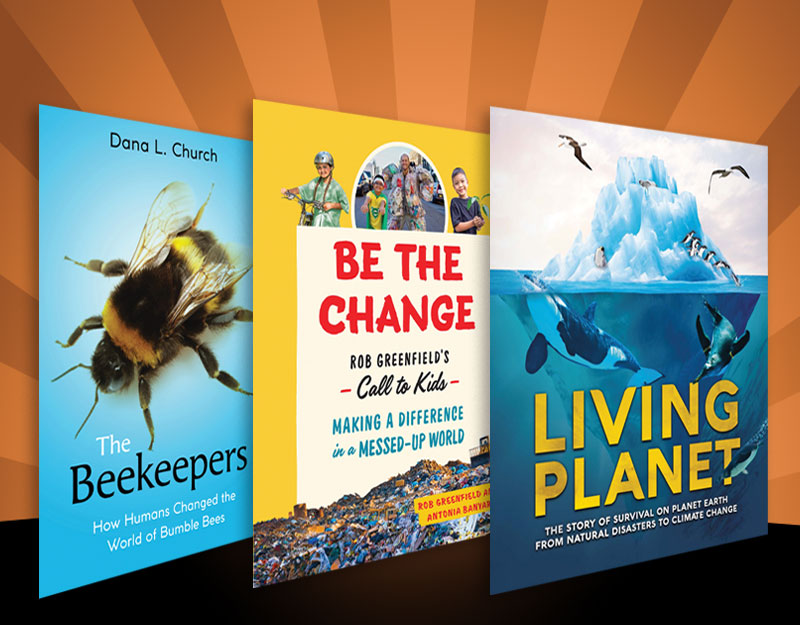
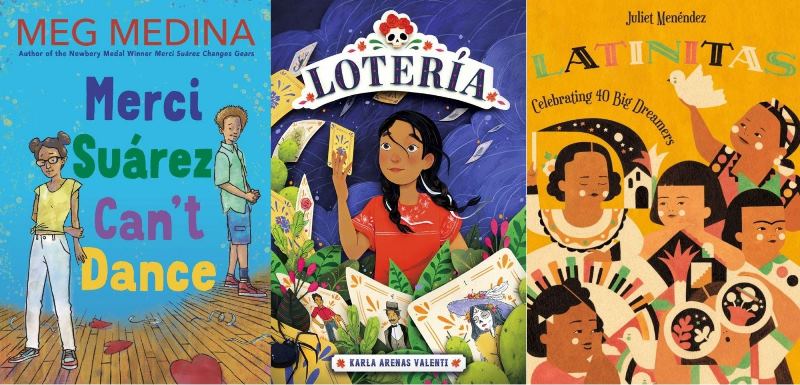
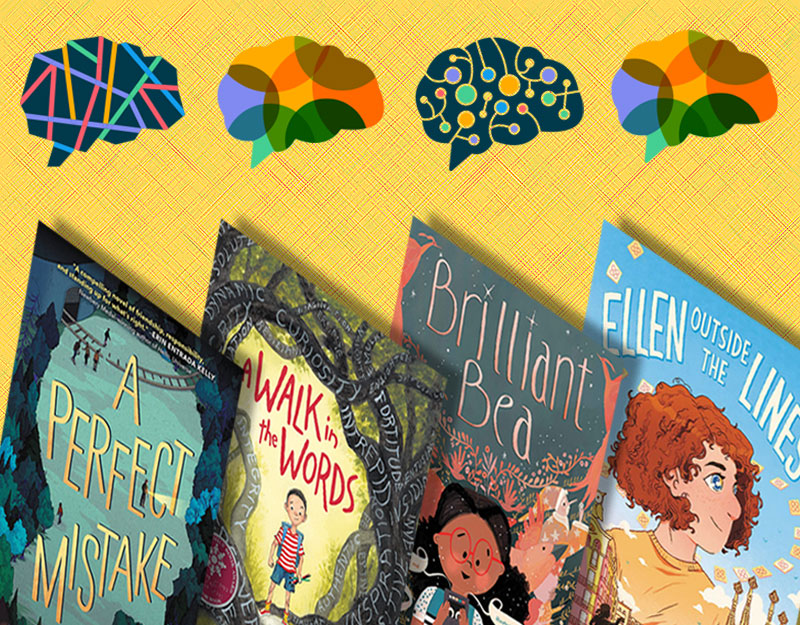
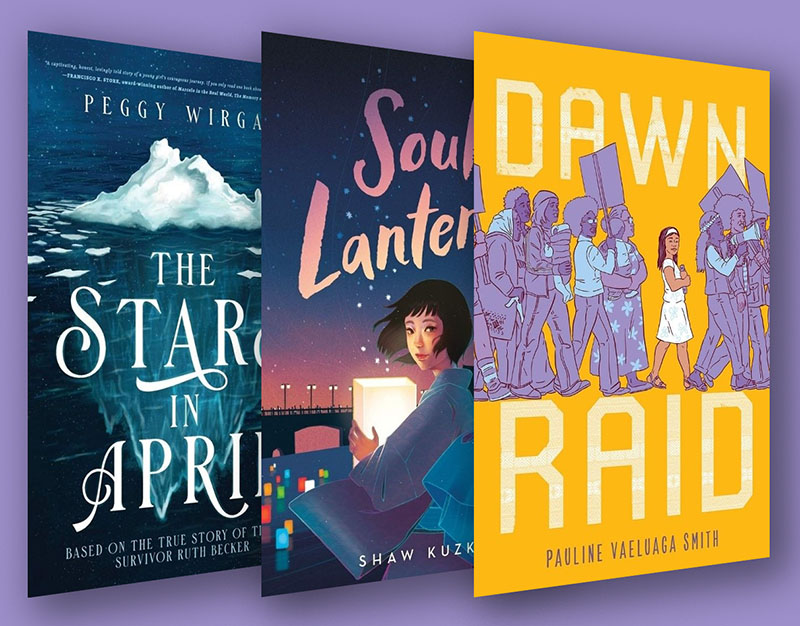
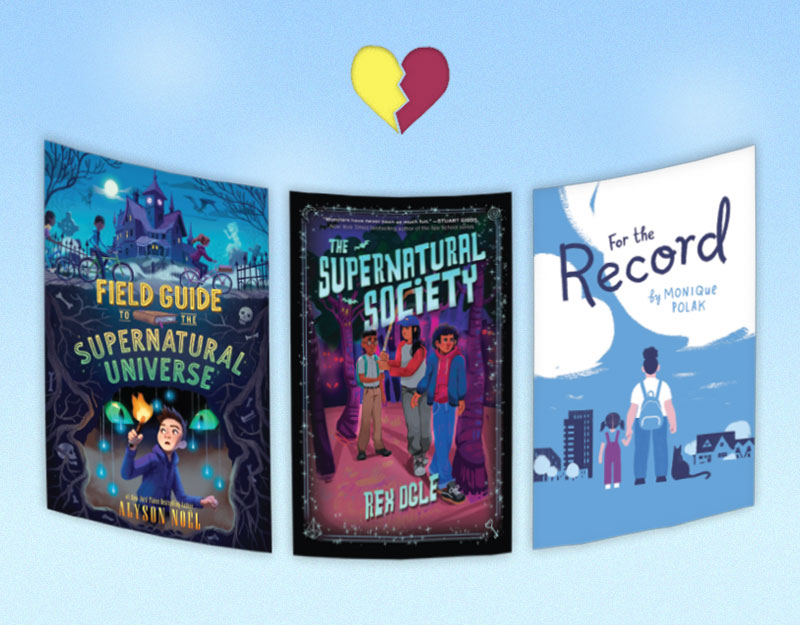
Thank you for paying attention to such an important topic. Many people often forget (or prefer not to hear) about depression and obsession in sports. You did really good by standing your ground and continuing to fight no matter what.